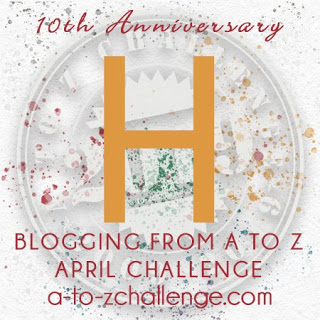 I have written a lot previously about One-Name Studies (If you are new here, welcome! – you can read all the posts about researching surnames HERE).
I have written a lot previously about One-Name Studies (If you are new here, welcome! – you can read all the posts about researching surnames HERE).
One of the fascinating things about a Surname Study that I love is the history and origins of a surname.
Understanding the history of surnames is important and they do vary depending on which country you are researching in. In some cases, such as Ireland the introduction of surnames goes back to the 10th Century, yet Turkey only introduced surnames as late as 1934. In Iceland names are organised by first name.
In England surnames were introduced by the Normans from 1066. By 1250, landed families had surnames and by 1450 most families had surnames, but it was adopted around 100 years later in the north of the country.
In Scotland, from about 1300 landed families had surnames and from 1500’s the Scots residing in the lowlands took surnames. By the mid 1700 surnames were fixed in the Highlands and by 19th Century they were adopted by the Northern Isles.
In Wales, surnames were adopted after the Acts of Union in 1536 and 1543. They developed a Patronymic system which was still in use during the 19th century in rural areas. From 1837 we begin to see surnames being systematically used and much more stable following the introduction of Civil Registration.
Second names are also of importance and can give us as research vital clues as to the origins of the family. Second names are typically dependent on both the culture and geography. In the highlands of Scotland, second names were not recognised or used until the 17th century yet in Ireland the process began in the 10th Century.
In Italy many surnames are variations of the root names and ending in either ini, inu, etti, etto and illo all meaning little, or ucci meaning a descendant of di as a prefix meaning of or from. Broadly speaking those that end in O come from the south and those ending in I come from the north.
There is also the fascinating of something called a Detto, which is a second surname. This is added to distinguish one branch of the family from another and this moves down the generations. I have the fascinating surname in my own family of Magro Malosso. I wrote a bit about this surname HERE
As with much of Europe, women retain their maiden name after marriage and one thing to remember is that surnames can change overtime, through being written incorrectly and people not knowing that something was spelt incorrectly, accents caused the name to be written incorrectly and in parts of our history those who were of descent that they felt was problematic sought to “anglicanise” their surname in order to fit in and be less foreign.
The history of our surnames is, in essence the foundations of a surname study.
Try out Tip
- What does your surname mean?
- What are the Origins?
- Does it reflect your heritage?


My maiden name is McKendrick and I was surprised to find it listed as Henderson at times. Interesting stuff!
Thanks, and best wishes!
Cherdo
Cherdo on the Flipside
Blogging from A-to-Z April Challenge
LikeLike
It appears that a Jewish ancestor living in Manchester changed his name from Moses to Moss.
LikeLike
Hi Betty, yes that sounds possible. It’s a shame that forebears felt the need to change their surname in order to blend in.
LikeLike
Julie, THanks for sharing such interesting facts. I have scheduled your post to share with my local society tomorrow as members will find it interesting too. Hope this is OK.
Fran
TravelGenee visiting from the A to Z challenge.
LikeLike
I hadn’t really thought about the historical implementation of surnames before -how interesting. My name means “weaver” and that’s always delighted me.
LikeLike
Surnames are interesting, mine was made up by my (paternal) grandfather to avoid getting mixed up with two set of people in the same apartment complex with the exact first names and surnames as my grandmother and grandfather.
It wasn’t until I started researching my family on my mother’s side I realised women hadn’t always taken their husband’s surname when they got married.
LikeLike
When I first started researching the surname Goucher another researcher told me that each family line had a Samuel Goucher and that originally the surname had been Goacher and the a was changed to a u to avoid mixing individuals up, especially if they all had Samuel’s in the family.
Sure enough, as I ploughed back through the records my husband’s family had originally been recorded as Goacher and there was indeed two generations at least of Samuel’s!
LikeLiked by 1 person
Surnames can change at the time of immigration too. My paternal forebears were Huguenots and added the place they came from to their otherwise rather ordinary surname Champion to distinguish themselves when they arrived in England in the 1690s.
Following along from A to Z
LikeLike